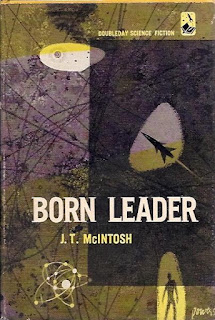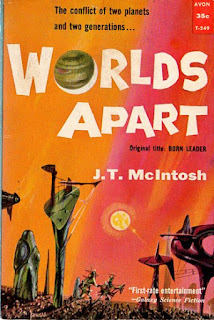The Orphan’s
Tales, Volume II: In the Cities of Coin and Spice, by Catherynne M. Valente (Bantam Spectra, 978-0-553-38404-8, $14, 528pp, tpb) November 2007.
A review by Rich Horton
Today is Catherynne M. Valente's birthday, so I'm taking the opportunity to post this review I wrote for Locus. It appeared in the November 2007 issue.
This is a
book (or pair of books) written on an old model: The Thousand Nights and a Night. Yet I found it as original, and
delightful, as any book I’ve read in years. It consists of fairy tales, yes,
but not retold fairly tales. Rather, entirely new tales, abundantly
imaginative, gorgeously written, and stunningly and intricately framed.
 |
| (Cover by Michael Komarck) |
The outer
frame is set in the garden of a Sultan’s estate. The Sultan’s daughter is about
to be married. The Sultan’s son has befriended the orphan girl who lives in the
garden. She tells him stories written on the inside of her eyelids (and eventually
he tells her the stories written on the outside). The Arabesque setting of this
frame immediately suggests The Thousand
Nights and a Night, and so too does the way the stories do not come to
immediate conclusions. But Valente’s design is more complex than
Scheherazade’s: instead of simply ending stories in the middle and completing
them the next day, these stories encounter other stories in their midst. So the
character in one story will meet a new character with their own story to tell,
and the first story will pause as the subsequent tale is recounted … and so on.
The book
is divided in two main parts, “The Book of the Storm” and “The Book of the
Scald”; each dominated, to an extent, by one story. “The Tale of the Crossing”,
in the first part, concerns a one armed boy crossing a lake in the company of a
ferryman in search of the girl who has been his companion during a terrible
childhood. The lake is clearly enough analogous to the Styx ,
and the ferryman to Charon … but of course he has his own story. In the second
part we read “The Tale of the Waste”, about a Djinn imprisoned in a cage, and
her story concerns her position as one of the Queens of the Djinni, and the
attack she is ordered to lead on the city of Ajanabh
As the
subtitle suggests, much of the focus is on a couple of colorful cities, both in
terrible decline. The city of coin is Marrow, and their coins are most
horrifying created. The city of spice is Ajanabh, but, as we learn, the spices
are all dead. Despite the current state of decline of these cities, The Orphan’s Tales is packed with
wonders. We read of living Stars, of mechanical women, of manticores, of a
giant who is the gate of a city, of courteous kappas (and what happens when a
kappa bows), of repentant sirens, of edible gems… Valente’s imagination is
prodigious, and she weaves lovely new patterns with existing mythical threads,
and she finds gorgeous new fabric as well. And all knitted together with poetic
prose.
The
stories are not just intertwined structurally, but thematically as well. And
characters from one story will sneakily pop up later from a different angle.
Time is rather fluidly treated – the book seems to cover perhaps the entire
history of its exotic world. (I can imagine an annotated version attempting to
arrange the events chronologically.) One repeated theme is marriage, and for
the most part (though not entirely) the marriages treated in the book are sad.
(Which seems to bode ill for the Sultan’s daughter’s wedding.) But perhaps more
central to the book’s theme is Story – the way in which the stories change
depending on the teller, or on the focus, or on the outcome, is fascinating. As
to is the way Valente toys with our expectations for Story – the way in which
familiar patterns are altered.
The first
volume of The Orphan’s Tales, In the Night Garden, is on the World
Fantasy Award shortlist. I haven’t read
it yet, but if it is as good as In the
Cities of Coin and Spice, it would be a worthy winner. And so too this book
– not really a novel, nor a collection of short stories, but something
different – should be looked for on next year’s award shortlists.




